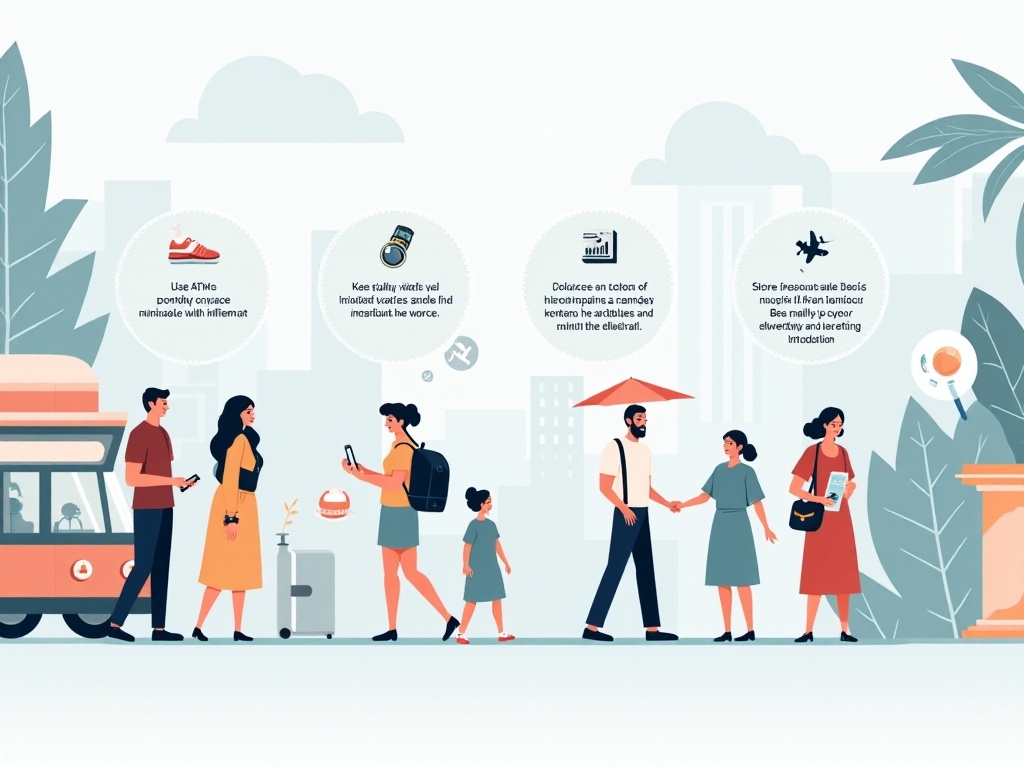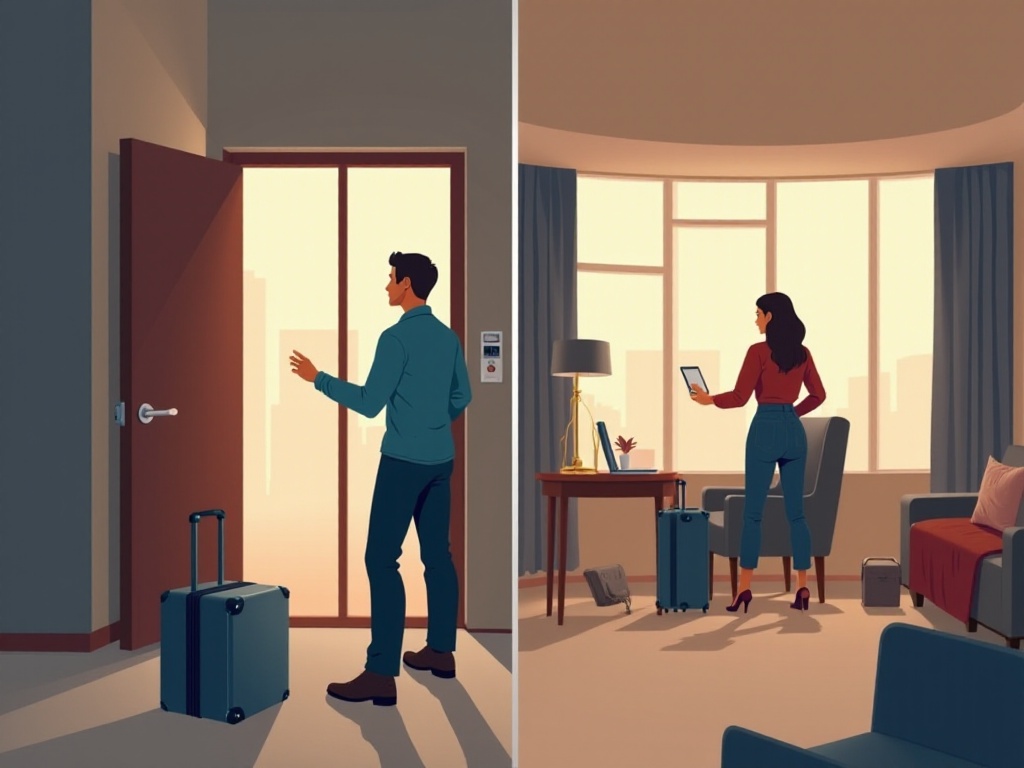
Opening Thoughts
I still remember my first time staying at a hostel, pushing open that door while dragging my 28-inch suitcase. To be honest, I was extremely nervous, as safety is always the top priority for a solo female traveler. However, after six months of hostel living and visiting over 20 hostels across the country, I've discovered that staying in hostels can be both economical and safe - it's all about knowing the right approach.
At first, I had many concerns: Would I encounter strange roommates? Would my belongings be safe? Would I be secure while sleeping? But with experience, I found solutions to all these issues. Looking back, those worries could have been avoided with the right precautions.
Location Strategy
When it comes to location, it's truly a science! Choosing the right location can increase safety by 80%, and this is no exaggeration. Location is now my first consideration when selecting a hostel.
While city center hostels might be slightly more expensive, they're absolutely worth it. For instance, the hostel I stayed at near Chunxi Road in Chengdu was surrounded by vibrant activity. 24-hour convenience stores were everywhere, food was always available when hungry, and drinks were readily accessible when thirsty. Most importantly, returning late at night felt completely safe with the constant flow of people and well-lit streets.
In contrast, hostels in remote areas, though temptingly cheap, often present safety risks. Once, to save money, I booked a hostel in the suburbs, but walking back at night, there wasn't a soul in sight and the street lights were flickering. It felt very unsafe. Since then, I've made it a rule: better to spend more and stay in a bustling area.
Additionally, surrounding facilities are crucial. I particularly look for nearby subway stations, bus stops, and large shopping centers or supermarkets. These seemingly ordinary facilities are important sources of security. For example, the hostel I stayed at in Xi'an was close to the Muslim Quarter, but what made me feel most secure was the subway station downstairs, making it convenient to go anywhere and never worry about finding transportation late at night.
Location selection should also consider peak tourist seasons. In popular areas like Lijiang Ancient Town, staying slightly outside the old town might be better during peak season, offering both quietness and proximity to attractions.
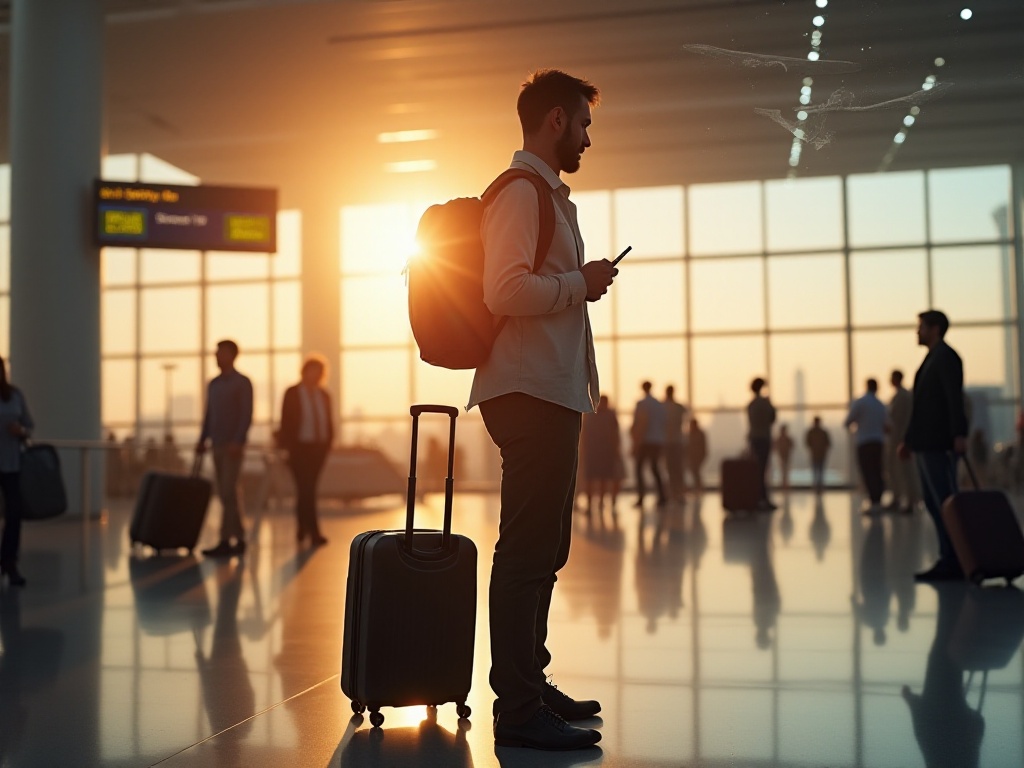
Booking Tips
Booking requires a lot of strategy. First, I now always book at least 3 days in advance, as good beds get taken quickly. During holidays, booking a week ahead is sometimes necessary.
Before booking, I spend considerable time reading reviews, especially from female guests. Female travelers tend to notice important details like bed curtain quality, bathroom cleanliness, and soundproofing. Once, by carefully reading reviews, I discovered a hostel had poor quality bed curtains with large gaps and switched to another place, avoiding potential awkward situations.
I've discovered a useful tip: check how hostels respond to reviews. If they actively address negative feedback and show improvement, it indicates responsible management. Conversely, if they ignore negative reviews or respond poorly, that hostel requires careful consideration.
Regarding prices, many hostels offer long-stay discounts. If planning an extended stay, directly communicating with the front desk usually leads to better rates than platform prices. Plus, establishing direct contact means faster problem resolution.
Pay attention to room types when booking. Many hostels offer various options like mixed dorms, female dorms, and rooms with private bathrooms. As a female traveler, I recommend female dorms - they might cost more than mixed dorms but provide better safety and comfort.
If budget allows, rooms with private bathrooms are ideal. No worries about bathroom cleanliness or shower queues. Though pricier, the improved experience is worth it.
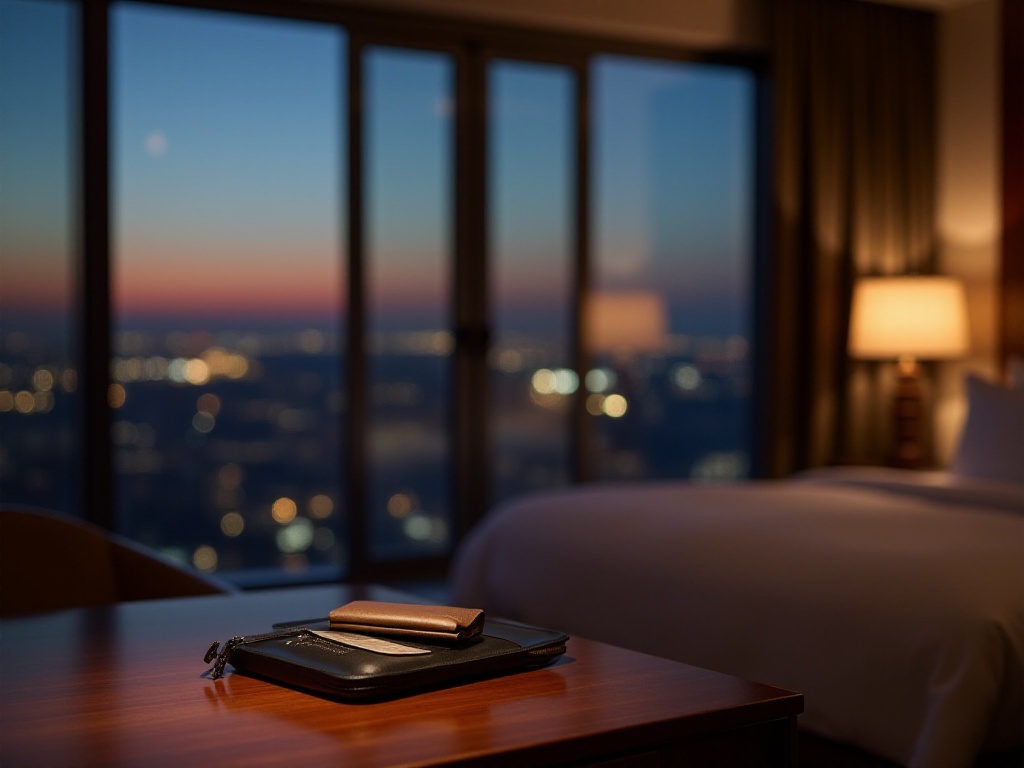
Check-in Rules
Bed selection requires careful consideration. Through numerous stays, I've developed a set of criteria for choosing beds.
The first choice is always a bottom bunk against the wall. Why? Bottom bunks offer easy access, especially for nighttime bathroom trips without disturbing others. Wall-adjacent positions provide better privacy with one side against the wall. These spots usually have power outlets too, making charging convenient.
I strongly recommend avoiding beds near bathrooms and doorways. These locations are often affected by noise - door sounds, flushing noises - all can disturb rest. Once, I chose a bed near the door and was awakened several times by roommates entering and leaving at night.
Bed orientation matters too. If possible, choose beds facing the room's interior for better observation of the room. These positions usually have moderate lighting, preventing disturbance from external light.
Upon entering the room, first check the bed's cleanliness. Pay attention to sheet cleanliness, odors, and curtain condition. Report any issues to the front desk immediately for replacement.
Proper bed curtain use is important. I suggest closing curtains upon entering your bed space to create privacy. However, leave a small gap for ventilation - this ensures both safety and comfort.
Many hostels provide small reading lights, which are very thoughtful. If not provided, bringing your own is recommended for reading or organizing things at night without disturbing others.
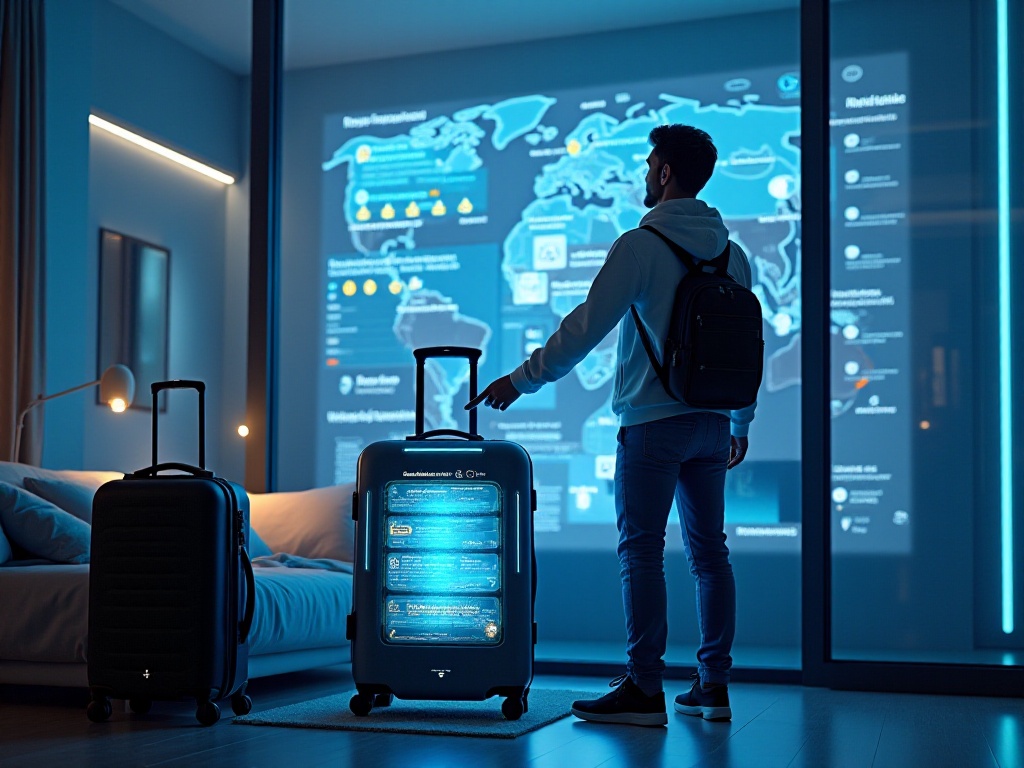
Belongings Management
In hostels, protecting personal belongings is paramount. Through multiple stays, I've developed a comprehensive system for managing belongings.
First, always keep valuables with you. I keep passport, cash, and phone in a bedside storage pouch, placing them near my pillow while sleeping. Some might think this is overly cautious, but I believe safety comes first.
Clothing organization is also important. I keep needed clothes in a small bag, with others locked in my suitcase. This provides both convenience and security. Undergarments especially must be stored properly, not left out.
Many hostels now provide lockers, which are extremely useful. However, I recommend bringing your own lock rather than using hostel-provided ones. You never know how many people have used the lock before or who might know the combination. I now use a fingerprint lock, which is both convenient and secure.
Cosmetics and toiletries need careful organization too. I keep these items in waterproof storage bags, taking the entire bag to the bathroom and bringing it back immediately after use. This prevents both forgetting items and others mistakenly taking them.
Important documents I keep in sealed bags within a waterproof container. While seemingly unnecessary, this protects against rain or other unexpected situations.
Device charging requires safety awareness. While many hostels have public charging areas, I recommend charging at your bed space to monitor your devices. If public charging is necessary, do so during busy hours and retrieve devices promptly.
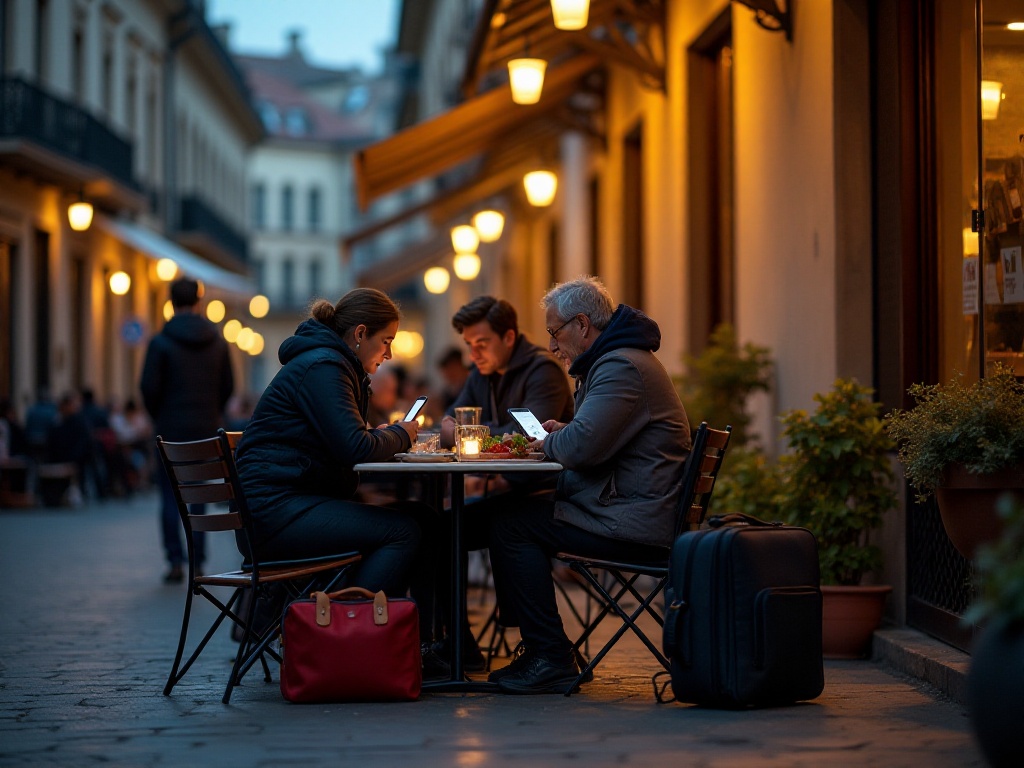
Bathroom Strategy
Honestly, bathroom concerns are probably the biggest worry when staying in hostels. However, with proper methods, these issues can be managed.
Female dorms with private bathrooms are ideal, though pricier, they offer the most convenience and peace of mind. If budget is limited, regular female dorms work fine - the key is having adequate toiletries.
Slippers are essential - bring two pairs, one specifically for showering. Also bring multiple towels, so you have a spare while one is drying.
Shower timing is strategic. I've found 3-5 PM is optimal, when most guests are out and bathrooms are empty. If you must shower during peak morning or evening hours, avoid exact hours (try 7:30 or 8:30 PM) for shorter queues.
When using bathrooms, bring all necessary items in a mesh bag to avoid forgetting anything. Maintain privacy by wearing appropriate clothing to and from bathrooms.
While many hostels clean bathrooms regularly, quick personal sanitizing is wise. I carry sanitizing wipes to clean toilet seats and sinks before use for better hygiene.
If bathrooms are unclean, report it to the front desk immediately. Most hostels will arrange cleaning promptly as it affects guest experience.
Social Guidelines
While hostels are great for socializing, female travelers should observe certain precautions.
First, protect personal information. My rules are: chat freely but don't reveal room numbers; exchange WeChat but avoid going out alone together; share travel experiences but limit personal details like workplace or home address.
Maintain appropriate distance when socializing in public areas. If someone makes you uncomfortable or seems suspicious, leave promptly and seek front desk help if needed.
Meeting like-minded travelers is wonderful, but first meetings should stay in hostel public areas - avoid going out alone together. If going out, group outings are safer.
Be careful with social media interactions. Avoid sharing real-time location details, especially when alone. Wait until leaving to post travel stories and photos.
Night Safety
Nighttime safety is crucial and requires extra attention.
A portable door lock is essential - this small device has proven invaluable many times. In Lijiang, when the room lock seemed unreliable, this extra lock helped me sleep soundly.
Proper bed curtain use is vital for both privacy and security. Check curtains for damage before sleeping, ensure full coverage while maintaining ventilation gaps.
Time your hostel returns carefully, avoiding late nights. If returning late is necessary, take a taxi directly to the hostel entrance. The taxi fare is worth the safety.
Avoid lingering alone in public areas at night. If using common areas, choose busy times or bring roommates along.
Emergency Preparedness
As the saying goes, better safe than sorry. Good emergency plans are essential for hostel stays.
Start by saving important phone numbers. I keep local police and hostel numbers on speed dial for emergencies. Also note locations and numbers of nearby 24-hour stores and hospitals.
Keep a small flashlight by your bed - this is crucial. During power outages or emergency exits, a flashlight is invaluable. I also keep band-aids and basic medicines nearby.
Learn emergency exit locations beforehand, ideally walking the escape route once. While seemingly excessive, this preparation could prove vital in emergencies.
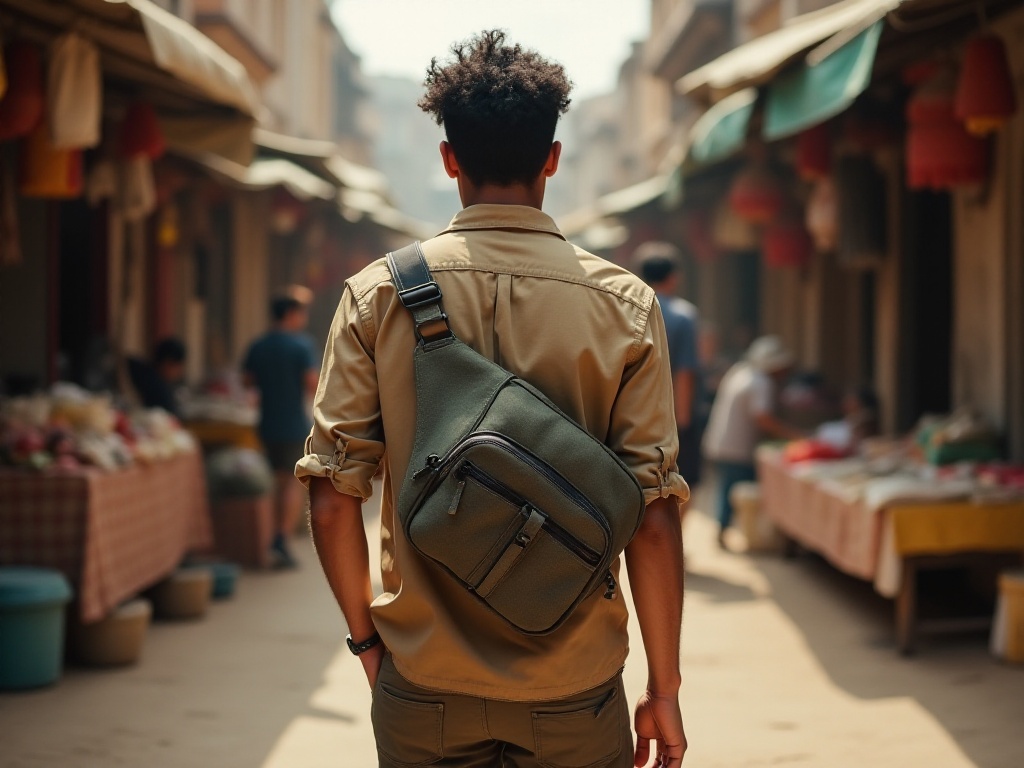
Concluding Thoughts
These six months of hostel living have taught me much. Safety isn't about luck but careful preparation and wisdom. With proper preparation, hostels can be not just economical accommodation but places full of warmth and stories.
Now I can confidently enjoy the various pleasures hostels offer. Each new city and hostel brings new adventures and experiences. Of course, safety remains paramount, and these experiences and lessons are crucial rules for self-protection.
If you're planning your hostel journey, consider saving this article. After all, preparation is key. If you have unique hostel experiences, please share in the comments - let's learn and grow together.
Finally, I wish every female hostel traveler a happy and safe stay. Remember, enjoyable travel is built on a foundation of safety. Let's explore this beautiful world together with wisdom and courage.
Next
Essential Safety Guide for Solo Female Travelers in 2024: From Hotel Booking to Scam Prevention
A comprehensive guide covering travel safety aspects including accommodation security, personal belongings protection, and behavioral safety. Provides practical advice on lodging preparation, valuables management, document security, and scam prevention for travelers
Safety Guide for Solo Female Travelers Abroad: A Veteran Travel Blogger's 10 Years of Experience
A comprehensive travel safety guide covering pre-trip preparation, personal security, accommodation safety, and emergency readiness. Offers practical safety advice and best practices for travelers, from accommodation planning to fraud prevention
First Time Traveling to Japan Alone? Don't Miss These Essential Preparations! A Comprehensive Guide
A comprehensive guide covering essential travel safety preparations, including document management, luggage security, accommodation safety, and personal property protection, helping travelers minimize risks during their journey.
Next
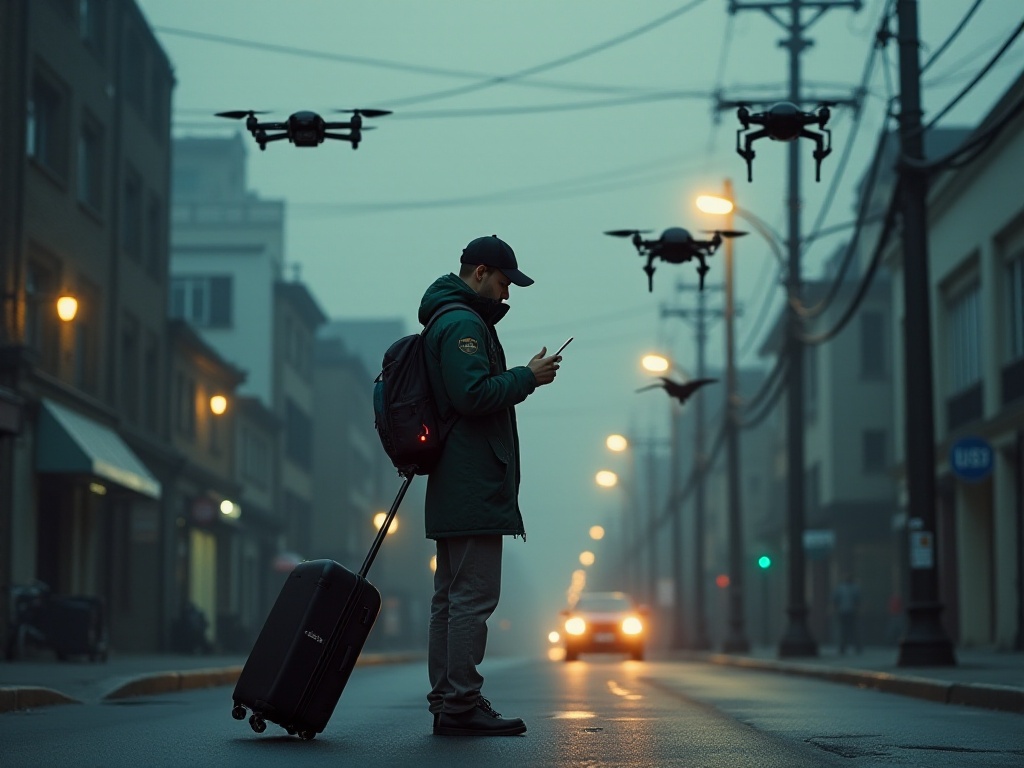
Essential Safety Guide for Solo Female Travelers in 2024: From Hotel Booking to Scam Prevention
A comprehensive guide covering travel safety aspects including accommodation security, personal belongings protection, and behavioral safety. Provides practical advice on lodging preparation, valuables management, document security, and scam prevention for travelers
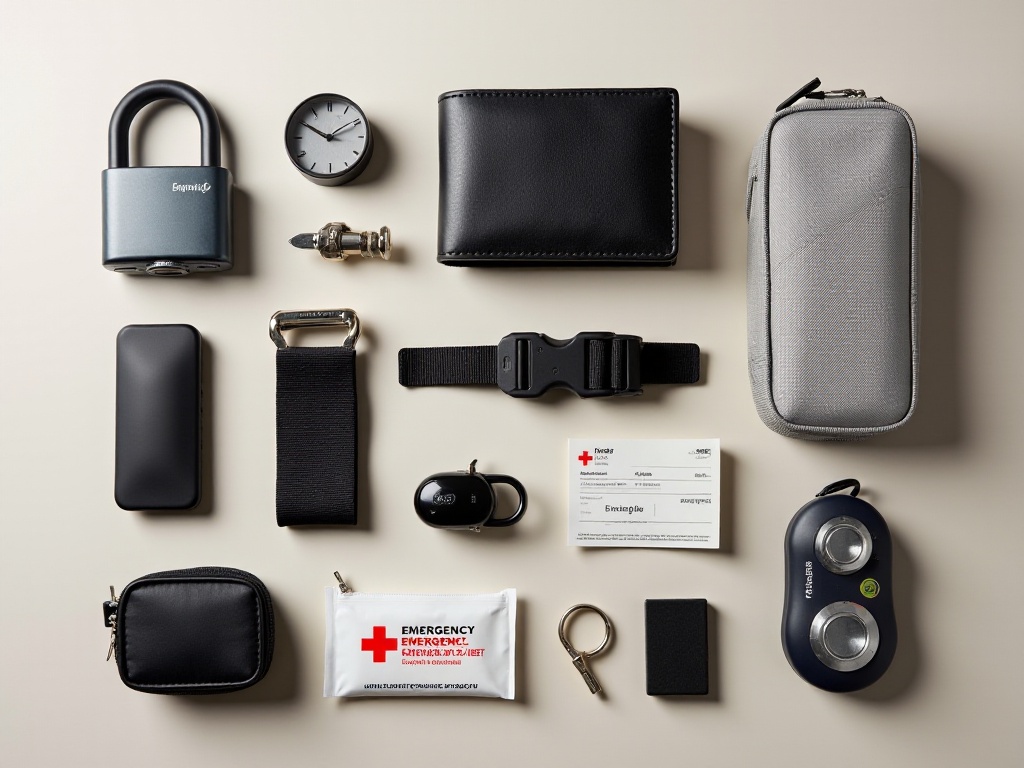
Safety Guide for Solo Female Travelers Abroad: A Veteran Travel Blogger's 10 Years of Experience
A comprehensive travel safety guide covering pre-trip preparation, personal security, accommodation safety, and emergency readiness. Offers practical safety advice and best practices for travelers, from accommodation planning to fraud prevention
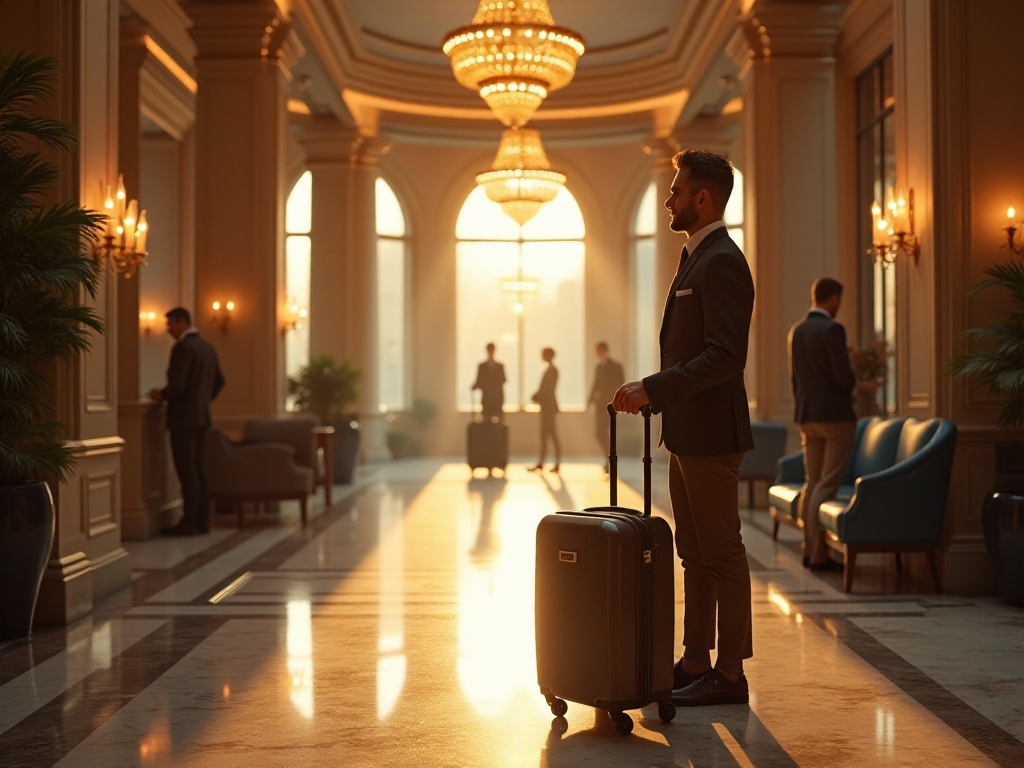
First Time Traveling to Japan Alone? Don't Miss These Essential Preparations! A Comprehensive Guide
A comprehensive guide covering essential travel safety preparations, including document management, luggage security, accommodation safety, and personal property protection, helping travelers minimize risks during their journey.

